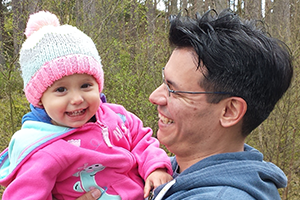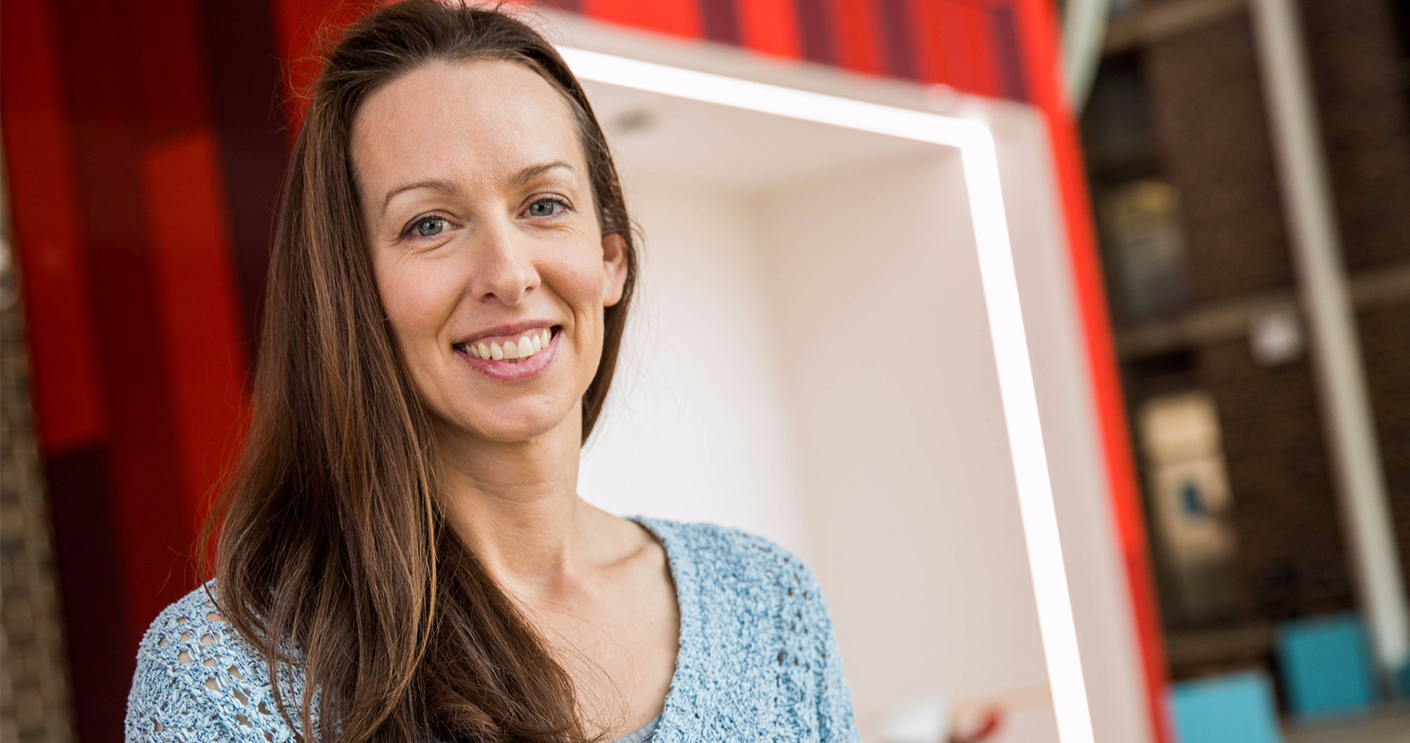As an ARC Future Fellow, Heather Handley is at the top of her research game. And like many researchers, her working week can involve anything from attending an international conference, to fieldwork in a remote location, to media interviews, to writing journal articles – all on top of day-to-day duties like teaching or PhD candidate supervision.
She also happens to be the mother of two young girls – Sienna, 3-and-a-half, and Isabelle, 18 months.
The volcano expert is one of many (predominantly female) academics at Macquarie who are trying to meet the demands of an intensive research career while catering to the equally (and often even more) intensive demands being a parent of young children.
“I think there are a lot of people who don’t realise the full impact that having a child has upon your academic career,” says Heather.
“For example, I work with radioactive and hazardous chemicals in the lab as part of my work and I had to stop that when we first started trying for children. I also couldn’t travel to my field locations in Indonesia and Vanuatu and climb volcanoes due to safety reasons. So, the career impact of having a baby went – and continues to go – well beyond just the time I have taken as official parental leave.”
For many academics, the parental leave period itself often involves a significant amount of unavoidable university-related work, as Heather points out.
“Being an academic isn’t a job that is easily passed on to anyone else while you are on leave. There are PhD students reliant on your direction, and abstract submissions and annual funding proposal deadlines that won’t wait. I asked a journal for an extension in the revision of a manuscript after just giving birth to Isabelle and they gave me just an extra week. The work doesn’t actually stop, even though you’re so sleep deprived you can barely function!”
While Heather is keen for managers to be aware of the challenges facing academics with young children, she is grateful to be working at a university that is working so hard to improve conditions for women through the Gender Equity Strategy.
 Heather’s husband, Department of Earth and Planetary Sciences Head Juan Carlos Afonso, was able make use of Macquarie’s flexible parental leave-splitting policy, taking one day a week as parental leave to care for Isabelle until she was 12 months old.
Heather’s husband, Department of Earth and Planetary Sciences Head Juan Carlos Afonso, was able make use of Macquarie’s flexible parental leave-splitting policy, taking one day a week as parental leave to care for Isabelle until she was 12 months old.
“Aside from the obvious benefit of this arrangement to our family, it’s good for Juan as a HoD to have had that experience of being a primary carer,” says Heather.
Another big help for the family has been the Primary Carer Conference Support Scheme, which provides grants for academic staff, allowing them to attend and present at important conferences by covering the cost of extra care or covering the cost of travel for a family member.
Through the scheme, Heather was able fly her mother from the UK to the United States, so Heather could present at last year’s International Association of Volcanology and Chemistry of the Earth’s Interior (IAVCEI) Scientific Assembly, which is only held every four years.
“Isabelle was only seven months old and still breastfeeding, and Juan Carlos wasn’t able to come with me because he was teaching and had to look after Sienna,” recalls Heather.
“Being able to be there and give an invited talk at a conference raised my profile, and the new connections made at the conference have been of great benefit to myself and Macquarie. My attendance at the conference resulted in the co-supervision of new research students, new collaborations in ARC funding proposal submissions and faster progress to be made in current research projects with international collaborators by being able to meet face-to-face.
All the people I met at the conference were so impressed that Macquarie offers these grants,” she adds. “It’s relatively small things like this that can make such a big difference to attracting and retaining talented female researchers.”
Heather is currently sitting on a newly formed parent-carer task group, with several academics looking at how Macquarie’s policies can be further improved. She says one thing she’d love to see is the development of a University-wide parent-carer support group, allowing staff to meet with other carers and share experiences and information.
“Regardless if you’re academic or professional staff, it helps to know other people are experiencing similar issues and hearing how they have handled things and overcome challenges,” says Heather.
Applications for the next round of Primary Carer Conference Support Scheme funding closes on 22 June. A dedicated online information hub for carers at Macquarie will launched soon – stay tuned to This Week for further updates.


 Back to homepage
Back to homepage
Hi Heather,
Great great interview!!, I´ll try to make eco here in Chile…though a hardly reachable idea. Nice to see the family you have form. I miss you. Karen
Thanks Holly!
Dear Heather,
Thank you for sharing your experiences and raising the profile of this super important issue.
Cheers
Holly (Law School)